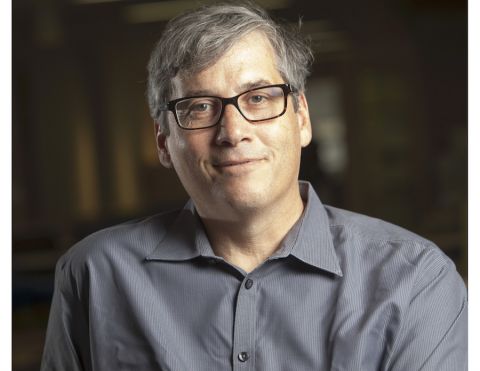
On July 1, Professor David Freedman began his term as Law’s new Associate Dean of Graduate Studies and Research. Freedman, who holds an undergraduate law degree from Osgoode, a master’s degree from Oxford and a PhD in Law from Cambridge, is also a Certified Specialist in Estates and Trust Law. The founder and past director of the Queen’s Elder Law Clinic, he has published widely about legal issues encountered by the elderly. He teaches a range of private law subjects, including trusts, wills and estates, and civil procedure.
Queen’s Law Reports talked with Associate Dean Freedman about his plans for his new role.
QLR: As Associate Dean, what will you do first?
DF: In order to learn the job, my plan is to seek the advice of my colleagues in the Faculty. I’m not in favour of “top-down” administrative practices and I’m sure that faculty members will be of great assistance in helping to identify priorities. It would be ideal for me to be able to reflect their needs to the university in internal committees and the like, and assist in structuring Faculty policies that strike an appropriate balance with university resources and strategic goals. Given that we have access to additional sources of funds for research through the profession generally (Ontario Bar Association, Law Society of Upper Canada, and the like), I would think this is quite doable.
QLR: What do you look forward to in your graduate studies role?
DF: It’s always nice to have involvement with future colleagues who are doing graduate work. I’m looking forward to meeting our continuing and new students and learning more about their work. In addition to recruiting top students, I am looking forward to speaking with stakeholders to get a sense of their positions on needed support.
QLR: What are your top priorities for research at the Faculty?
DF: My principal role is support. That said, I’m interested in new ways to leverage technology to the advantage of researchers. For example, the area that I work in is private law; that is, trusts and estates law. This is bread and butter lawyer’s work with the emphasis on doctrine. The profession generally leverages technology in the form of webinars and e-journals to ensure that information and research filters down to lawyers. The sort of research that we do in the Faculty is sometimes of equal interest to scholars and practitioners alike, as well as scholars in other disciples. It would be nice to find ways to draw attention to our work and to create Internet-based spaces to share that research and interact with those utilizing our research.
QLR: What are your goals for LLM and PhD studies?
DF: I was involved in getting our PhD proposal together and navigating through the various approval steps in 2008. I’d like to get a sense of how the program has developed in the interim and revisit some of the assumptions made and goals identified at the outset.